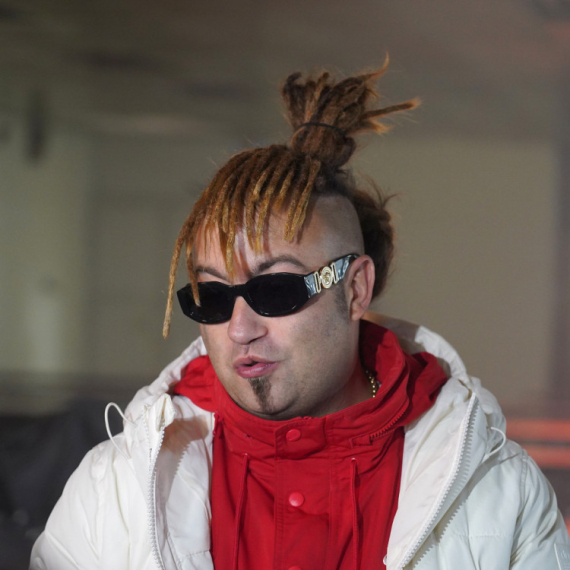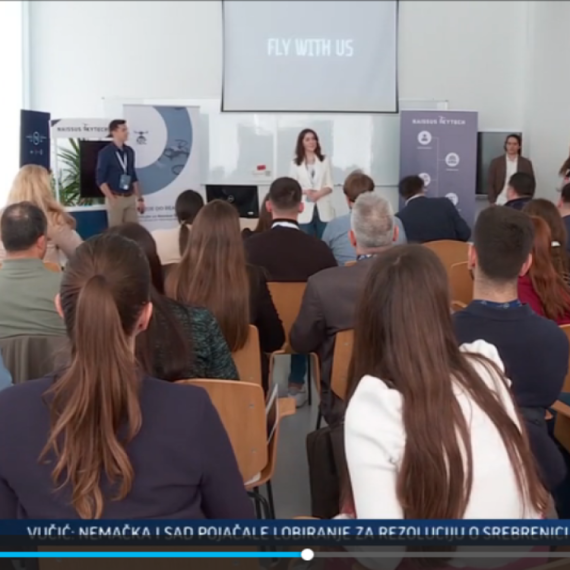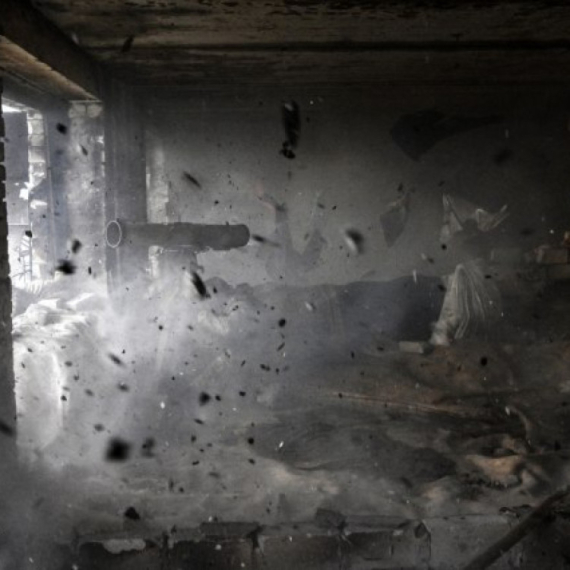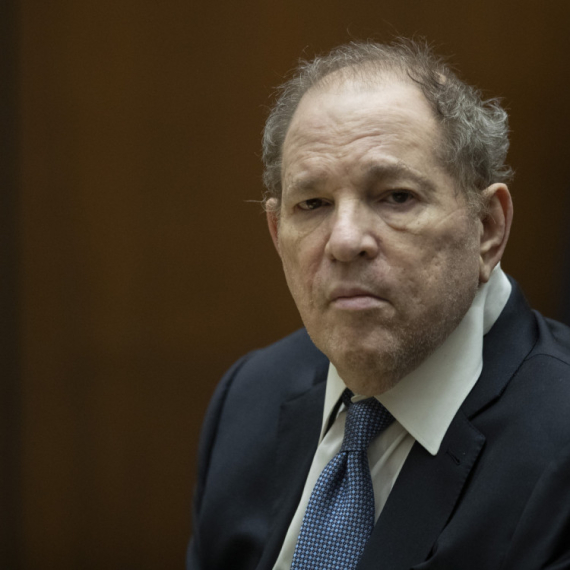Nikolić exceeds expectations, analysts say
Serbian President Tomislav Nikolić's foreign policy can be rated positively and he personally has exceeded all expectations, foreign policy experts believe.
Thursday, 31.01.2013.
16:50

BELGRADE Serbian President Tomislav Nikolic's foreign policy can be rated positively and he personally has exceeded all expectations, foreign policy experts believe. They added however, that he still needed to do more to define his profile as a statesman. Nikolic exceeds expectations, analysts say "Nikolic from May and June last year is not the same Nikolic from January this year," said Croatian political analyst Davor Gjenero, while member of the Belgrade Forum for International Relations Milan Karagaca explained the Serbian president had exceeded all expectations stemming from his work as an opposition politician and the media image of him created during this period. "Nobody expected Nikolic to be this open, direct, clear and resolute when it comes to key issues in our foreign policy, which are the EU and Kosovo," said Karagaca. He recalled that when it comes to the Kosovo issue, the president had shown a statesman's courage by coming out with a clear position and readiness to find a final solution. "In this way, the public has gained a new perspective on foreign policy and is reacting with approval, because it sees that something is happening. If (former Serbian president) Boris Tadic had done what Nikolic is doing right now, he would have come under heavy attack. Maybe there would even have been demonstrations," said Karagaca. Podgorica’s Center for Civic Education Executive Director Daliborka Uljarevic agrees with Karagaca and says the Serbian president "is definitely not Nikolic who was in the opposition." "So far it seems that Nikolic is accepting Euro-Atlantic integration without reservations as a definitive choice. Many are positively surprised by the way Nikolic sees regional relations and their significance. He has definitely realized the significance and sees that a serious state policy is not possible without serious regional policy," believes Uljarevic. Gjenero explained his impression that Nikolic in the opposition and Nikolic as a head of state were practically not the same person by the president's willingness to learn. "He is learning. He has been in the opposition his whole life and his discourse was different from a president's discourse," said the Croatian analyst. In his opinion, at the beginning of his term Nikolic made the mistake of speaking too freely. “Nikolic closed to door to the possibility of serious talks with Croatian President Ivo Josipovic by making some statements at the start of his term which were not taken well in Zagreb,” said Gjenero. The analysts told Tanjug it was too early to discuss whether other countries had a higher regard for Serbia with Nikolic as its president. "Serbia presents a problem for Europe and the region because of the Kosovo issue, so I would not agree that Serbia is now more important or recognized. It will all depend on how persistent and serious Serbia is in seeking a final solution for Kosovo and relations in the region," said Karagaca. Gjenero also believes Nikolic will be judged by the international community primarily by his contribution to the normalization of relations between Belgrade and Pristina. "In this matter we are seeing an unusual, but positive rivalry between him and the government, because he and (Serbian Prime Minister Ivica) Dacic are competing over whose influence will be bigger in this, which is good for the cause. Any attempt on Nikolic's part to impede the dialogue between Dacic and (Kosovo's Prime Minister Hashim) Thaci would not be seen in a positive light, but there is no indication he would do something like this, so he will gradually stabilize his international position," he stressed. “If Serbia were to become a regional leader, this would be a major political success for Tomislav Nikolic,” said Uljarevic. Even though she believes Nikolic has serious support in the Montenegrin government, and has managed to keep certain positions he had with some of the most powerful opposition parties, she said the president's past casts a certain shadow on his present efforts. "Progress and agility in regional and international communication are evident, as well as the desire to present Serbia as a key player in the region. But there is also the problem of past rigid nationalism which still casts serious doubt as to Nikolic's democratic capacities and intentions," believes Uljarevic. According to Karagaca, the downside of Nikolic's manner is that it leaves an impression of nationalist rhetoric or "starting from nationalist positions". “For instance, when it comes to Kosovo, we are still talking about it as a territory and Serbs in Kosovo even though we should talk about other citizens in that territory as well. Treating national issues as territorial ones is still present, which has cost us dearly throughout history. Also, brotherhood with Russia is overly glorified even though Nikolic has said that it was his personal conviction,” Karagaca noted and concluded that “there is no brotherhood in international relations, there are only interests”. Tomislav Nikolic (Tanjug, file) Tanjug
Nikolić exceeds expectations, analysts say
"Nikolić from May and June last year is not the same Nikolić from January this year," said Croatian political analyst Davor Gjenero, while member of the Belgrade Forum for International Relations Milan Karagaća explained the Serbian president had exceeded all expectations stemming from his work as an opposition politician and the media image of him created during this period."Nobody expected Nikolić to be this open, direct, clear and resolute when it comes to key issues in our foreign policy, which are the EU and Kosovo," said Karagaća.
He recalled that when it comes to the Kosovo issue, the president had shown a statesman's courage by coming out with a clear position and readiness to find a final solution.
"In this way, the public has gained a new perspective on foreign policy and is reacting with approval, because it sees that something is happening. If (former Serbian president) Boris Tadić had done what Nikolić is doing right now, he would have come under heavy attack. Maybe there would even have been demonstrations," said Karagaća.
Podgorica’s Center for Civic Education Executive Director Daliborka Uljarević agrees with Karagaća and says the Serbian president "is definitely not Nikolić who was in the opposition."
"So far it seems that Nikolić is accepting Euro-Atlantic integration without reservations as a definitive choice. Many are positively surprised by the way Nikolić sees regional relations and their significance. He has definitely realized the significance and sees that a serious state policy is not possible without serious regional policy," believes Uljarević.
Gjenero explained his impression that Nikolić in the opposition and Nikolić as a head of state were practically not the same person by the president's willingness to learn.
"He is learning. He has been in the opposition his whole life and his discourse was different from a president's discourse," said the Croatian analyst.
In his opinion, at the beginning of his term Nikolić made the mistake of speaking too freely.
“Nikolić closed to door to the possibility of serious talks with Croatian President Ivo Josipović by making some statements at the start of his term which were not taken well in Zagreb,” said Gjenero.
The analysts told Tanjug it was too early to discuss whether other countries had a higher regard for Serbia with Nikolić as its president.
"Serbia presents a problem for Europe and the region because of the Kosovo issue, so I would not agree that Serbia is now more important or recognized. It will all depend on how persistent and serious Serbia is in seeking a final solution for Kosovo and relations in the region," said Karagaća.
Gjenero also believes Nikolić will be judged by the international community primarily by his contribution to the normalization of relations between Belgrade and Priština.
"In this matter we are seeing an unusual, but positive rivalry between him and the government, because he and (Serbian Prime Minister Ivica) Dačić are competing over whose influence will be bigger in this, which is good for the cause. Any attempt on Nikolić's part to impede the dialogue between Dačić and (Kosovo's Prime Minister Hashim) Thaci would not be seen in a positive light, but there is no indication he would do something like this, so he will gradually stabilize his international position," he stressed.
“If Serbia were to become a regional leader, this would be a major political success for Tomislav Nikolić,” said Uljarević.
Even though she believes Nikolić has serious support in the Montenegrin government, and has managed to keep certain positions he had with some of the most powerful opposition parties, she said the president's past casts a certain shadow on his present efforts.
"Progress and agility in regional and international communication are evident, as well as the desire to present Serbia as a key player in the region. But there is also the problem of past rigid nationalism which still casts serious doubt as to Nikolic's democratic capacities and intentions," believes Uljarević.
According to Karagaća, the downside of Nikolić's manner is that it leaves an impression of nationalist rhetoric or "starting from nationalist positions".
“For instance, when it comes to Kosovo, we are still talking about it as a territory and Serbs in Kosovo even though we should talk about other citizens in that territory as well. Treating national issues as territorial ones is still present, which has cost us dearly throughout history. Also, brotherhood with Russia is overly glorified even though Nikolić has said that it was his personal conviction,” Karagaća noted and concluded that “there is no brotherhood in international relations, there are only interests”.






















































Komentari 4
Pogledaj komentare